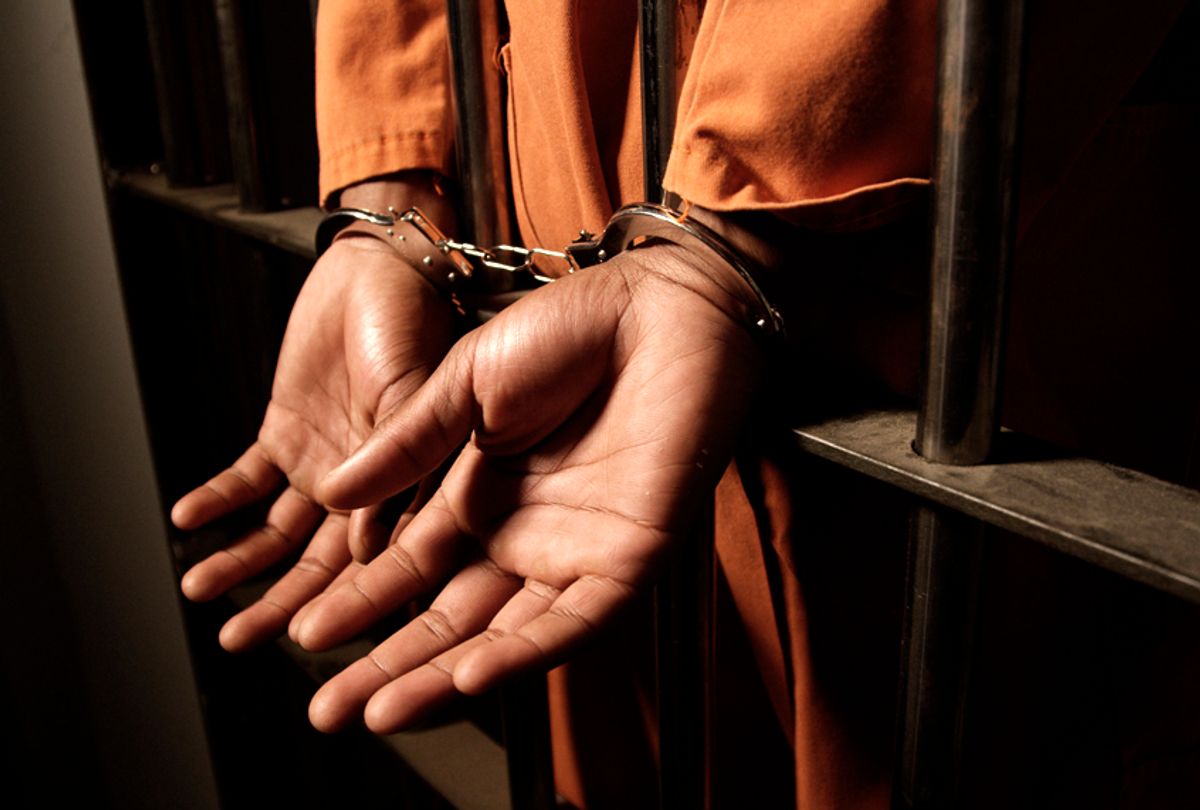As a social engineer, Kortney Ziegler is always thinking of new ideas and posting them to his Twitter. "An app that converts your daily change into bail money to free black people," he tweeted in July.
Like many of his brainstorms, it was a one-off gesture thrown into the digital ether. But something was different about this one. It quickly got hundreds of retweets and affirmations. "I'd sign up!" many users wrote back.
Impressed and inspired by the response, Ziegler decided to make the app a reality.
The result is the web-based service "Appolition," which officially came to life on Nov. 14. Ziegler, along with his co-founders in Atlanta, hoped to reach 200 users by mid-December. As of today, Appolition has close to 6,000. And its current, web-based form is just the beginning. Ziegler says mobile apps for iPhone and Android users are on the way.
Here's how it works: Appolition connects to your bank account and rounds up each purchase you make to the nearest dollar. The spare change is then donated automatically once it accrues to at least 50 cents. By signing in to the website, it takes you to a personal secure dashboard where you can track your contributions to bail relief as you spend. It's both passive — you don't even notice you're using it — and effective.
In just three weeks of operation, Appolition has already raised $12,000 to free incarcerated black people who can't afford bail. Ziegler says the app currently generates $1,000 per day through spare change and that it's gotten so much traction that he's had to implement a credit-card feature, after hearing from people without bank accounts who still wanted to contribute.
When it comes to actually bailing out individuals, Appolition partners with National Bail Out, a coalition of over 25 national organizations that wants to end money bail and schedules national bailouts of black people. Ziegler was most inspired by their national effort to bail out black mothers on Mother's Day this year and thought, as someone embedded in the Silicon Valley innovation world, he could elevate their work through technology.
Ziegler also sees bailing out black people as a way to effect immediate change in someone's life. Even a short stay in jail can result in loss of employment, housing or the custody of one's children. Plus, Ziegler says, black people deserve to be granted the same presumption of innocence "just like everybody else who has money in the country."
Twelve million people are processed in jails annually and 60 percent of them have not been convicted of a crime, Shaka Senghor, formerly incarcerated activist and Director of Strategy and Innovation at the criminal-justice reform initiative Cut 50, told Salon. For the most part, those forced to languish in cells awaiting trial are the ones who can't afford bail.
Sometimes, as Senghor notes, the cost differential between making bail and waiting months or more in a cell for a trial can be staggeringly low, often just a few hundred dollars. "But," he says, "if you come from an impoverished community, $200 may as well be $2 million."
Senghor added that often the conditions for those accused at county jails can actually be worse than for those in prison. They're overcrowded, unclean, sometimes violent, and the food is abhorrent.
As if simply living with such things isn't overwhelming enough, it can be nearly impossible for an accused person to build an adequate defense while incarcerated. Often, Senghor says, people will take plea deals just to free themselves from these conditions. Considering all that, raising bail funds can be a critical step forward toward disrupting America's mass incarceration epidemic.
In this, Senghor and Ziegler both see the app as a newer, more tech-savvy approach to activism. "I love to see people from marginalized communities taking advantage of the opportunities that tech allows for us to solve problems," Senghor said. "I think that we need to have contemporary tools to solve contemporary problems."
Ziegler says that the app "says a lot about what crowdfunding can do, what tech can do," as well as how tech can be a real tool "to bolster the activism work that we do."
"Our current justice system is really like this very complex maze, with so many entry points, but sadly, far too few exit points," Senghor said. "That’s one of the things we need to change, and I think this app will help to do that."



Shares